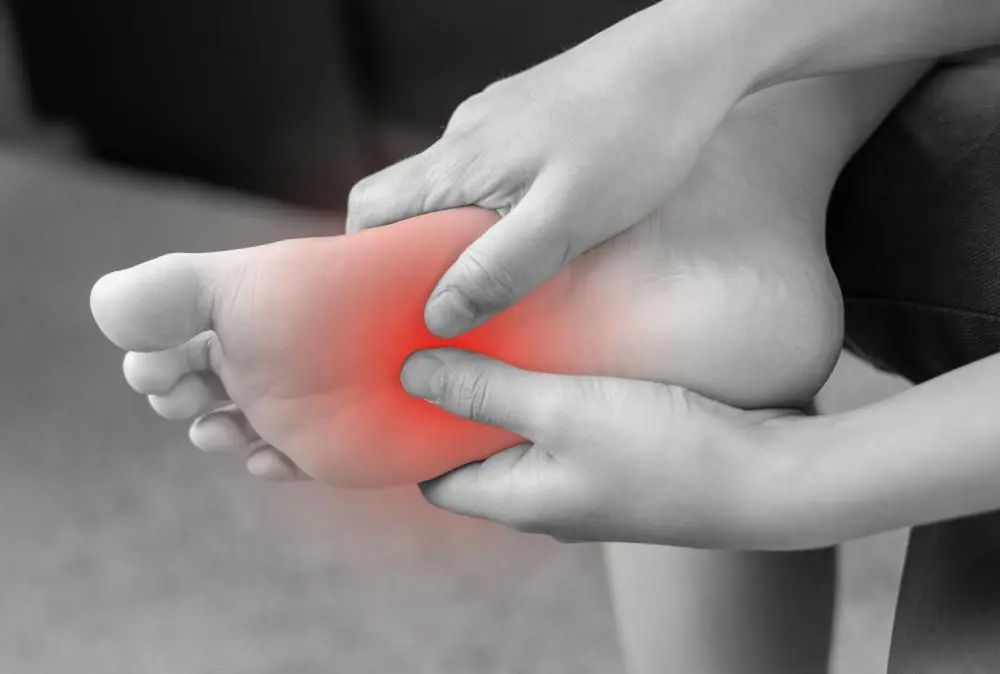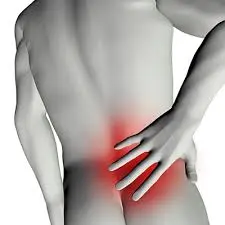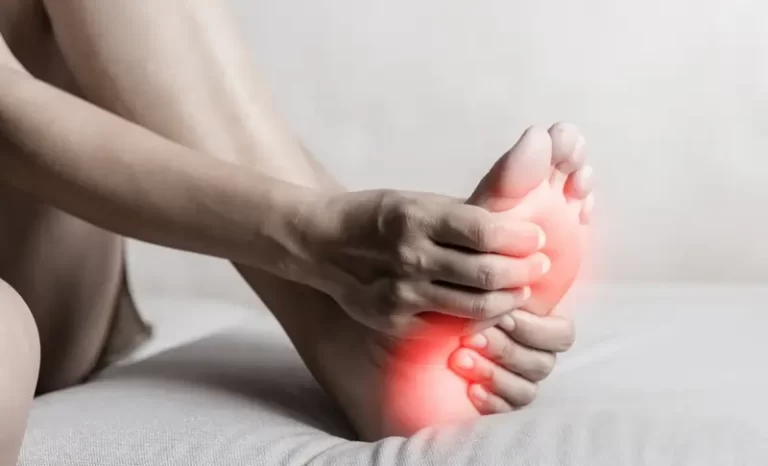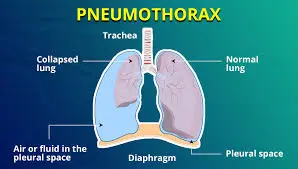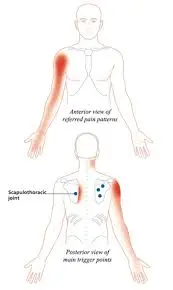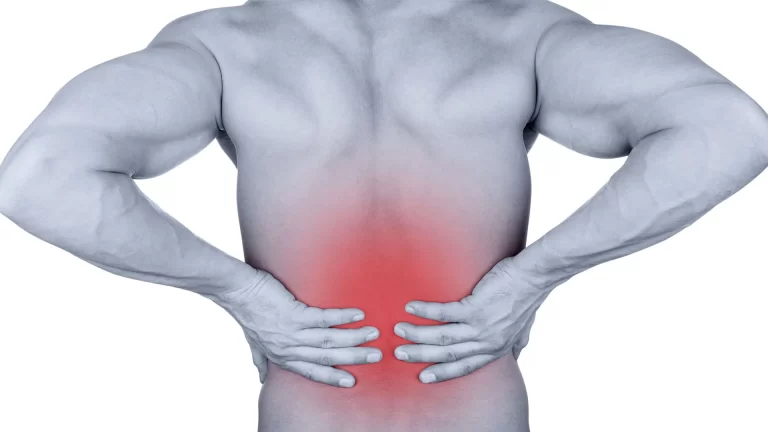Alcoholic Neuropathy
Introduction
Alcoholic Neuropathy is a condition characterized by nerve damage resulting from chronic and excessive alcohol consumption. It primarily affects the peripheral nerves, leading to symptoms such as numbness, tingling, pain, and muscle weakness, typically in the limbs.
Alcohol’s toxic effects on nerves, combined with nutritional deficiencies (especially B vitamins) common in heavy drinkers, contribute to the development of this condition. Early diagnosis and treatment, including alcohol cessation, nutritional support, and symptom management, can help prevent further nerve damage and improve quality of life.
What is a Alcoholic Neuropathy?
Alcoholic neuropathy can develop as a result of excessive alcohol use over time. Another name for this disease is “alcohol-related neuropathy,” which helps to lessen the stigma associated with it. Damage to the peripheral nerves, which carry signals from the body to the brain and spinal cord, is a hallmark of alcohol-related neuropathy.
Your body uses peripheral nerves to control vital motor and sensory processes, such as:
- Feeling pain and touch
- Moving your arms and legs
- Controlling your bladder and bowel
Up to 66% of AUD sufferers may have some form of alcohol-related neuropathy, according to research. Avoiding alcohol can help you regain your nutritional balance, relieve your symptoms, and stop additional nerve damage. However, some nerve damage caused by alcohol is irreversible.
To find out more about the signs, causes, and therapies of alcohol-related neuropathy.
Causes of alcoholic neuropathy
It’s unclear exactly what causes alcohol-related neuropathy. However, long-term excessive alcohol consumption has been linked to peripheral nerve injury, according to a study.
Malnutrition is one way that long-term alcohol use can result in alcohol-related neuropathy. Drinking alcohol might affect how your body absorbs vital nutrients and vitamins for the neurological system, including:
- Vitamin B1 (thiamine)
- Folic acid
- Vitamin E
Chronic alcohol usage can also lead to inflammation and oxidative stress in the body. Axonal degeneration and demyelination, or damage to the myelin surrounding the nerves, are linked to this.
A long history of excessive alcohol consumption is common since alcoholic neuropathy typically takes years to develop. Alcoholic neuropathy develops and progresses more quickly in some people than in others. The reason why some persons are more likely than others to experience this difficulty is not entirely understood.
Toxin accumulation in the body and dietary deficiencies are the causes of alcoholic neuropathy. Alcohol causes serious deficiencies that impact many parts of the body, including the nerves, by reducing the absorption of minerals like magnesium, selenium, and vitamins B1 and B2,6.
Additionally, alcohol changes how the kidneys, liver, and stomach work, which makes it harder for the body to effectively detox waste. After that, this waste accumulates and damages numerous body parts, including the nerves.
The projections that transmit electrical impulses from one nerve to another, known as axons, are usually impacted by nerve injury. It also damages myelin, the fatty coating that surrounds and protects the nerves.
Signs and Symptoms of alcoholic neuropathy
Losing weight is a prodrome, especially in persistent alcoholics (early warning symptom) of the potential development of alcoholic polyneuropathy since it typically indicates a nutritional shortage that might cause the disease to develop.
Although axonal degradation frequently starts before a person exhibits any symptoms, alcoholic polyneuropathy typically develops gradually over months or even years.
- Although all sensory modalities may be affected, the disease usually manifests as sensory problems, motor loss, and unpleasant bodily experiences. It appears that symptoms affecting the motor and sensory systems develop symmetrically. For instance, the left foot is impacted concurrently or shortly after the right foot is impacted. The legs are typically impacted first, then the arms. When the symptoms extend past the ankle, the hands typically become affected. A stocking-and-glove pattern of sensory disruptions is what this is known as.
- The signs and symptoms of alcoholic neuropathy are typically mild at first and might develop gradually. Someone who drinks excessively may not even be aware that their symptoms are caused by their alcohol use.
Sensory
Heat sensitivity, unusual feelings like “pins and needles,” and numbness or painful sensations in the arms and legs are common signs of sensory problems. Individuals’ level of pain is determined by how severe their polyneuropathy is.
Some people may find it dull and continuous, while others may find it piercing, stabbing, and sharp. When the muscles in the legs and feet are palpated, many people exhibit tenderness. Additionally, some persons may experience cramping in the affected muscles, while others report burning in their calf and feet.
Motor
Motor problems appear progressively after sensory complaints. Muscle weakness and cramping, male erection dysfunction, urination dysfunction, constipation, and diarrhea are examples of motor symptoms. Additionally, people may have diminished or nonexistent deep tendon reflexes and muscle atrophy.
Ataxia can cause unsteadiness in gait and frequent falls in certain people. Distal muscular weakness, sensory ataxia, or cerebellar degeneration could be the cause of this ataxia. Alcoholic polyneuropathy can also result in muscle atrophy, spasms, and trouble swallowing (dysphagia) as well as speech problems (dysarthria).
Peripheral neuropathy and alcohol-related neuropathy share many symptoms. These can have an impact on your sensations and both controlled and involuntary motions.
The lower limbs are most frequently affected by symptoms, which can include:
- Pins-and-needles pain, numbness, and tingling (paresthesia)
- Your upper body and several organs may not operate properly if you have severe alcohol-related neuropathy. Other potential signs of alcohol neuropathy include the following:
Arms and legs
- muscle spasms and cramps
- muscle weakness and wasting
- loss of balance or coordination
- foot drop
Urinary and bowel
- Incontinence
- Constipation
- Diarrhea
- Problems starting urination
- Feeling that the bladder hasn’t been emptied fully
Other
- Sexual dysfunction
- Low blood pressure
- Fast heartbeat (tachycardia)
- Excessive sweating
- Vomiting and nausea
- Dizziness or lightheadedness
- Skin infections, scrapes, sores, or bruises on the fingers, toes, or feet
- Reduction in injury pain, particularly in the hands or feet
- Diminished feeling in the fingers, hands, arms, legs, toes, or feet
- Dizziness, particularly when standing with eyes closed
- Inability to coordinate the hands or feet
- Loss of balance/unsteadiness when walking
- Toes, feet, legs, fingers, hands, or arms that hurt, thrilling sensation, or have other strange sensations.
- Sexual dysfunction
- Having trouble walking straight, even if you haven’t just used alcohol
- Erection problems
- Unsteady gait (walking)
- Problems swallowing or talking
- Weakness in the feet or hands
It’s critical to consult a medical expert if you encounter any peripheral neuropathy symptoms. Your chances of fully recovering can be improved with early diagnosis and treatment.
Risk Factor
A person’s risk of the neurotoxic effects of alcohol, the quantity and duration of alcohol usage, and nutritional inadequacies are risk factors for developing alcoholic neuropathy. Alcoholics, or those who drink a lot of alcohol over a long period, are more susceptible, particularly if they don’t eat enough of the essential nutrients for nerve function and repair.
Additionally, genetic variables might be involved, rendering certain people more susceptible to alcohol-related nerve injury than others. Further factors that may affect the onset and intensity of neuropathic symptoms include liver function, general physical health, and concurrent substance use.
Other Risk Factor
Other factors besides alcohol might cause neuropathy. Nerve injury can also result from certain circumstances. Knowing which of these disorders affect you is important. They can exacerbate the neuropathy when used with alcohol. The following are common risk factors for neuropathy.
Unhealthy Diet
The body already loses essential minerals when drinking alcohol. However, folate or B12 shortage can occur when you don’t get enough vitamins and minerals from your usual diet. Peripheral neuropathy may result from this.
Diabetes
Neuropathy is frequently the outcome of metabolic disorders. Peripheral neuropathy in individuals with diabetes ranges from 6% to 51%. The nerves may be harmed by the frequent changes in blood sugar. Excessive alcohol use makes the nerves even more susceptible to harm.
Kidney dysfunction
The body requires a steady balance of chemicals and salts in the blood for the nerves to work correctly. The kidneys are responsible for controlling this. However, it becomes challenging to filter out all those toxins when renal disease is present.
The kidneys are severely strained by drinking. Alcohol damages the kidneys by impairing the body’s capacity to filter out chemicals, toxins, and other potentially harmful substances. Alcohol’s diuretic properties, which cause the system to dry up, are another issue. Additionally, the kidneys may sustain significant harm and cease to function if they do not receive enough water.
Toxins
The body is susceptible to acquiring neuropathy when exposed to harmful substances. Toxins can affect and disrupt the function of nerve cells. Smelling glue, paint, or other inhalants can all have this impact.
Diagnosis
To evaluate your symptoms, a doctor will first do a physical examination and review your medical history. This could involve inquiries concerning:
How much and how frequently you drink alcohol, the kind, intensity, and frequency of symptoms you have To get a proper diagnosis, it’s critical to let the doctor know about any past alcohol consumption.
To rule out other potential causes of neuropathy, such as HIV, diabetes, and vitamin deficiencies, a doctor may also prescribe testing. These examinations could consist of:
- Blood tests
- Nerve conduction tests
- Electromyography
- Nerve biopsy
Physical examination:
Reflexes, muscle strength, sensibility (including light touch, pinprick, vibration, and position awareness), and coordination are all tested during a thorough physical and neurological examination. People with alcoholic neuropathy typically have decreased sensitivity and reflexes. Additionally, weakness may be seen if this disease progresses.
Electromyography (EMG) and nerve conduction studies (NCV):
Nerve function is thoroughly examined by EMG and NCV studies. Alcoholic neuropathy is suggested by certain patterns, including slowing of nerve activity, reduced amplitude of nerve waves, and diminished function in the hands and feet. Only the degree of nerve damage is determined by the nerve tests; the cause of neuropathy is not.
Nerve biopsy:
A nerve biopsy, which may occasionally be recommended by a physician, may reveal a pattern of nerve degeneration that is Suitable for alcoholic neuropathy.
Other tests:
To rule out other causes of neuropathy symptoms, additional evaluations may involve blood or urine tests, or imaging investigations of the brain or spinal cord.
Differential diagnosis
Several other medical conditions can be confused with alcoholic neuropathy. The most common of these include:
- Diabetic neuropathy
- Guillain-Barré syndrome
- Amyotrophic lateral sclerosis (ALS) is one type of motor neuron disease.
- Multiple sclerosis (MS)
- Muscle disease
- Peripheral vascular disease
- Spine disorder
- Muscle pain
- Beriberi
- Folic acid Insufficiency
- Vitamin B12 Deficiency
- Human Immunodeficiency Virus (HIV)
- Syphilis
- Low blood sugar
- Hypocalcemia
- Multiple sclerosis
Telling your doctor that you abuse alcohol is crucial because the symptoms are so similar. This will assist them in making the appropriate diagnosis.
Treatment
Giving up alcohol is the most crucial step in treating alcohol-related neuropathy.
This could seem like a significant obstacle, particularly if you have AUD. But it’s crucial to realize that you’re not alone. Numerous professional services and support networks are available online or in-person to assist you on your journey. Although there is typically no cure for peripheral neuropathy, there are several medicinal interventions that can help you recover by managing the pain associated with alcoholic neuropathy. These consist of antidepressants and painkillers.
Antidepressant drugs are frequently used to assist manage the pain of alcoholic neuropathy, even though they are not licensed expressly for this condition. Sometimes doctors give anti-seizure drugs to treat pain. Since alcoholic neuropathy is partially caused by dietary deficits. Supplementing with vitamin B12, folate, vitamin E, and thiamine may be advised to address these deficits.
There are no drugs that can strengthen weak muscles, improve loss of feeling, or help with the balance and coordination problem caused by alcoholic neuropathy. The goal of AUD treatment is to assist you in controlling your alcohol desires and withdrawal symptoms. A mix of the following may be part of your treatment plan:
- Medications, such as naltrexone, acamprosate, and disulfiram
- Cognitive behavioral therapy
- Counseling, such as speaking with a therapist
- Joining an alcohol addiction support group
- Find out more about safely reducing alcohol intake.
- Controlling symptoms
- Maximizing ability to function independently
- Preventing injury
A physician can concentrate on treating alcohol-related neuropathy after alcohol consumption has been treated. The kind, location, and intensity of your symptoms will determine how you are treated.
Bladder problems may be treated with:
- Manual expression of urine
- Intermittent catheterization
- Medicines
Lifestyle changes
You can take the following actions to help manage your liver disease:
- Stop drinking alcohol.
- Consume a nutritious, salt-free diet.
- Get vaccinated for diseases such as influenza, hepatitis A hepatitis B, and pneumococcal pneumonia.
- Discuss all of your medications with your doctor, including over-the-counter medications, vitamins, and herbs.
Vitamin supplements
B vitamins
- Because B vitamins promote normal nervous system function, they can help cure neuropathy. Occasionally, a vitamin B shortage results in peripheral neuropathy.
- B1 (thiamine and benfotiamine), B6, and B12 supplements are recommended. If you have a specific deficit of one of these B vitamins, you may decide to take these separately rather than as a B complex.
- Peripheral neuropathy can be caused by a B12 deficiency. It can result in irreversible nerve damage if left untreated. This implies that taking a B12 supplement could be a smart move if you have peripheral neuropathy.
- Vitamin B6 may keep nerve terminals covered. On the other hand, you should not take more than 200 mg of B6 daily. Higher dosages have been linked to nerve damage and neuropathy symptoms, according to research from 2021.
B vitamin-rich foods include:
- Meat, poultry, and fish
- Seafood
- Eggs
- Low-fat dairy products
- Fortified cereals
- Vegetables
An earlier analysis from 2017 suggested that taking B vitamin supplements may help with nerve regeneration. This could be a result of B vitamins’ ability to enhance nerve function and hasten the regeneration of nerve tissue. They might also help reduce inflammation and pain.
Benfotiamine may assist persons with diabetic neuropathy, according to another study. They tested doses up to 900 mg daily, even though 300 mg was the suggested amount. These findings need to be expanded upon by other research. Examining benfotiamine’s effects in conjunction with other B vitamins is equally crucial.
Recovery Journey After Alcohol Addiction
Detoxification is a crucial stage that tackles physical alcohol dependence and is the first step towards recovery from alcohol addiction and the neuropathy that goes along with it. To ensure that the person safely overcomes the acute physical symptoms of safely reducing alcohol intake alcohol, detox entails medically managed withdrawal. To rid the body of toxins and get ready for the longer-term rehabilitation process, this stage is essential.
Comprehensive recovery programs, such as those provided at Resurgence Behavioral Health, offer the support and treatment required to address the psychological components of addiction after detoxification. Therapy, counseling, and instruction on substance addiction and its effects are all part of these programs.
In addition to controlling and treating nerve damage, rehabilitation for individuals with alcoholic neuropathy includes physical therapy, nutritional counseling, and techniques to stop additional nerve damage. To try to address the long-term consequences of alcohol on the liver, this treatment is also necessary.
According to experts, the best course of treatment should be to stop the peripheral nerves’ deterioration and concentrate on getting them back to normal. A well-balanced diet, vitamin B supplements, and correct and total abstinence from alcohol are the best ways to achieve that.
Unfortunately, alcohol-dependent people’s symptoms cannot be reduced by taking vitamin supplements alone. Focusing on the various routes that have contributed to the development of the disease is crucial because of this. Patients must be taught how to control their habitual alcohol abuse, for example. Additionally, they must acquire a variety of therapeutic medications to aid in control and prevent nerve injury.
At the top 90-day drug rehab facility for alcoholism in Dallas-Fort Worth, Texas, an alcohol detox can be helpful in this situation. People can successfully regulate their drinking habits and abstain from alcohol at an inpatient facility. This will help control the disease and lessen the effects of nerve damage.
However, individuals may require a liver transplant if the damage is too great, particularly to the liver. In situations like these, the transplant will give the body a healthy environment in which to start recovering from the toxic environment it was in before the transplant. It has the potential to increase neuropathy symptoms.
The liver transplant may, however, have little to no impact on the more severe symptoms in the rest of the body if the neuropathy has progressed to the point that it has permanently damaged the body.
Factors Affecting Recovery Time
The severity of the neuropathy and the person’s past alcohol use both have an impact on how long it takes to recover from alcoholic neuropathy, which varies greatly from person to person. If they stop drinking and get the right help right once, those with moderate neuropathic symptoms and a shorter history of alcohol misuse may recover more quickly and significantly. However, those who have a long history of heavy alcohol consumption and more severe neuropathy may find it more difficult to recover, and if nerve damage is severe, some symptoms might become permanent.
Recovery from alcoholic neuropathy also heavily depends on lifestyle and personal health variables. The rate of recovery can be influenced by a person’s nutritional status, metabolic rate, and treatment compliance. For example, increasing dietary intake can aid in the healing of nerve damage, but prolonged alcohol use can worsen symptoms and delay recovery. Regular exercise and abstinence from tobacco and other pollutants can help promote nerve healing and enhance general health, which can affect how long it takes for neuropathic symptoms to go away.
Long-term excessive alcohol usage can result in a nerve condition known as alcoholic neuropathy. Reduced sensation, pain/hypersensitivity, muscle weakness, and autonomic symptoms are the four primary categories of alcoholic neuropathy’s effects, which are caused by nerve injury.
Decreased Sensation
Sensory nerves are harmed by alcoholic neuropathy. As a result, the hands and feet become less sensitive. After drinking alcohol, you might feel numb if the sensation is reduced enough.
Although this might not seem like a major issue, the decreased sensation has very negative effects, such as:
Frequent bumps and scrapes: These injuries can occur more frequently if there is a reduced capacity to perceive the pain that would typically accompany common minor injuries.
Infections and bleeding: Tender sores and wounds may go untended due to the lack of typical pain, which could lead to more harm. Wounds may eventually bleed or get infected.
Reduced sensory abilities: A lack of balance and coordination in fine motor skills, such as walking and finger motions, may make it difficult to do everyday tasks like writing, typing, and walking. Advanced alcoholic neuropathy can cause unsteadiness, especially while the eyes are closed, which can result in potentially fatal falls.
Increased Pain and Hypersensitivity
Alcoholic neuropathy also frequently causes unpleasant and painful sensations. Alcoholic neuropathy can cause pain at rest and even tactile sensitivity. Light contact can feel unpleasant and exaggerated, especially in the fingers and toes.
One of the most irritating symptoms of alcoholic neuropathy is persistent pain in the hands or feet. The pain could be throbbing, like Pins and needles that sting. The severity of the pain may fluctuate as the disease worsens, occasionally going away for months before getting worse again.
Muscle Weakness
Severe alcoholic neuropathy can induce motor weakness because it destroys nerves. For our muscles to work, they must receive a signal from neighboring neurons. When injured nerves disrupt this message, the muscles are unable to perform their normal function. Hand and foot weakness is the most common manifestation of this.
Autonomic Neuropathy
The bladder, stomach, and intestines are among the organs in the body whose activities are regulated by autonomic nerves. Alcoholic neuropathy can impair sexual function as well as bladder and bowel function by weakening the autonomic nerves.
Prognosis
- If you have alcohol-related neuropathy, your prognosis improves the sooner you quit drinking. Some or all of the nerve damage caused by alcohol-related neuropathy may be reversible, according to research.
- However, nerve damage can occasionally be irreversible, and if you continue to drink, your symptoms are likely to get worse. Damage to your arms and legs, severe pain, and paralysis could result from this.
- The main strategy to prevent alcoholic neuropathy is to abstain from excessive alcohol use. Try to avoid alcohol completely in addition to consulting a doctor if you observe symptoms of alcoholic neuropathy, such as numbness after drinking. Some sites can assist you in safely reducing alcohol intake alcohol if you are struggling to do so.
How to prevent alcoholic neuropathy?
Here are some pointers for avoiding alcohol-related neuropathy:
- Avoiding alcohol if you have signs of alcohol-related neuropathy; asking for help if you’re experiencing problems abstaining from alcohol; and consuming no more than two drinks per day for men and one drink per day for women.
- maintaining a healthy diet, doing at least 150 minutes of exercise each week, and taking vitamin supplements if necessary
Is Alcoholic Neuropathy Reversible?
- Damage to the nerves caused by alcoholic neuropathy is frequently irreversible. If people don’t quit drinking, the symptoms get worse over time. People who drink alcohol for an extended period are at risk for chronic pain, incapacity, and damage to their limbs.
- However, patients can reduce nerve damage if they catch it early. A full (or mild) recovery is possible if you quit drinking and improve your nutrition. You can manage your deficits by taking vitamins.
Is Alcohol-Related Neuropathy Dangerous?
- Although this disease might not be fatal, it can result in irreversible harm if treatment is not received. It can significantly lower someone’s standard of living. People’s ability to function normally will be severely hampered by the ongoing agony in their arms and legs.
- Nerve injury can range from minor pain to severe incapacity, depending on its severity. Additionally, there may be long-term psychological effects from this. A major issue is emotional anguish.
What Is the Duration of Alcoholic Neuropathy?
- Nerve injury patients may experience burning or tingling feelings in their feet and arms. The duration of this pain may range from a few months to years. The disease usually affects the lower limbs and advances extremely slowly over months to years.
- However, the symptoms may go away and you may be able to lessen the likelihood of any further decline if you quit drinking. Unfortunately, alcoholic neuropathy typically results in irreversible damage.
How Does Alcohol-Related Neuropathy Feel?
- Usually, this disease results in persistent pain in the hands and feet. However, there are other problematic aspects of alcohol-related neuropathy than the pain. Additionally, it may feel like burning, throbbing, pins, or sharp needles. The feeling gets worse the longer it lasts. The pain will intensify, then may go away for a few months before coming back and getting worse.
- According to research, the majority of alcoholic neuropathy sufferers had numbness, poor sensory features, and diminished vibration perception. Only a tiny percentage of patients experienced upper limb weakness.
- In five independent studies, the prevalence of pain in alcohol-related neuropathy was shown to be 42%. Frequently, the lower limbs caused greater pain than the higher limbs. Additionally, four other studies found some degree of abnormality in the sensory nerves.
- Not all patients had nerve injury in the same way, even though the pain was widespread. Depending on the extent of their motor, sensory, and autonomic nerve injury, the symptoms can change.
- People will lose feeling in their hands and feet as a result of the ongoing sensory impairment. There may be severe repercussions. Patients are more susceptible to bumps and scratches. Their everyday activities would be hampered by the possibility of bleeding and infection from their wounds.
- Clinical reports indicate that muscle weakening may have major long-term consequences. Heavy nerve damage causes muscle weakness in cases of severe alcohol-related neuropathy. As a result, the nerves are unable to receive messages, which hinders their ability to function normally.
- The hands and feet often feel weaker as a result of this disruption. However, these muscles will have inadequate organ control when neuropathy affects the lower body. This implies that you might have problem with your stomach, bladder, and intestines. Therefore, sexual dysfunction caused by alcoholic neuropathy is not unusual.
- After examining 90 men, Spanish researchers discovered that nerve damage, mostly peripheral nerve damage, affected about 69% of volunteers who had sexual dysfunction. Extreme impotence and sexual dysfunction symptoms were also present in affected patients.
- The hands and feet have trouble functioning when that is combined with pain and hypersensitivity. As a result, patients frequently lose their balance and extremity coordination. This disrupts your everyday life in addition to making it impossible to enjoy sexual activity.
Conclusion
Long-term heavy alcohol use can result in a disorder called alcohol-related neuropathy. Alcohol’s harmful effects can harm your peripheral nerves, which are involved in movement and feeling. If you struggle to quit drinking or have signs of alcohol-related neuropathy, consult a healthcare provider. They might assist you in creating a therapy strategy.
Alcohol use disorder is a challenging condition. The medical establishment has acknowledged that addiction is a sickness and that certain individuals are more susceptible to it than others. Therefore, to control alcohol consumption disorder, medical assistance is typically required.
Some of the symptoms of alcoholic neuropathy can be lessened with medication. Reducing alcohol intake as soon as possible is the most crucial way to stop the symptoms of alcoholic neuropathy from getting worse.
- Chronic alcohol use leads to alcoholic neuropathy, which damages nerves, particularly in the arms and legs.
- How long someone has been drinking, the extent of the damage and the course of treatment can all affect how long it takes to recover.
- Recovery depends on avoiding alcohol, getting a better diet (particularly B vitamins), and attending physical therapy.
- Even though symptoms may go better, it can take months or more to fully heal, and some damage might not be repairable.
FAQs
What physical characteristics distinguish alcoholic neuropathy?
Any combination of the following could be a sign or symptom: scrapes, bruises, sores, or infections of the skin on the fingers, toes, or foot. Diarrhea or constipation. Reduced injury pain, particularly in the hands or feet.
How long does alcoholic neuropathy take to develop?
Discovered that the length of alcohol misuse was one of the most significant risk factors for peripheral neuropathy, with subjective symptoms appearing after a comparatively short period of abuse (1–5 years) and severe polyneuropathy following more than 10 years.
What are the signs of alcoholic neuropathy?
The symptoms of alcoholic peripheral neuropathy include impairments in sensory, motor, autonomic, and gait functioning that appear gradually over several months. The primary symptom of alcoholic neuropathy is pain, either with or without a burning feeling.
Which beverage is beneficial for neuropathy?
Any diet should include water, but it’s even more important for people who want to lessen nerve pain. Maintaining proper hydration throughout the day is essential for lowering inflammation and preventing pain receptor activation. Try to consume eight 8-ounce glasses of water per day.
Is it possible to cure nerve damage?
Schwann cells can aid in the regeneration and functional restoration of injured nerves. Damaged nerves can often regenerate at a pace of one millimeter per day or one inch per month. If there is a large amount of scar tissue or a space between the severed nerve ends, surgery is required.
To what extent does drinking lead to cirrhosis?
Alcoholic liver disease is more likely to develop if a person has consumed more than 30 grams of alcohol daily for more than five years. People who consume more than 40 grams of alcohol per day over an extended period may develop cirrhosis, a form of alcoholic liver disease.
Which fruit is best for neuropathy?
Antioxidants found in berries, peaches, cherries, red grapes, oranges, and watermelon, among other foods, aid in lowering inflammation and lessen nerve damage. Additionally, it has been discovered that cranberries, blueberries, and grapes are rich in resveratrol, a potent anti-inflammatory substance.
What is the last stage of alcohol-induced liver failure?
Cirrhosis and scarring may develop over time. The last stage of alcoholic liver disease is cirrhosis. Alcoholic liver damage does not occur in all heavy drinkers. The longer you have been drinking and the more alcohol you consume, the higher your risk of developing liver disease.
Is it possible for alcoholic neuropathy to develop suddenly?
Alcoholic neuropathy symptoms usually arise gradually over time, but in extreme situations, they can appear abruptly. Among the most typical warning indicators are: pain or weakening in the muscles. Tingling or numbness.
Reference
- Allen, S. (2024, September 6). Alcoholism and alcoholic neuropathy. Healthline. https://www.healthline.com/health/alcoholism/alcoholic-neuropathy
- Wikipedia contributors. (2024c, December 8). Alcoholic polyneuropathy. Wikipedia. https://en.wikipedia.org/wiki/Alcoholic_polyneuropathy
- Moawad, H., MD. (2024, May 1). What is alcoholic neuropathy? Verywell Mind. https://www.verywellmind.com/understanding-alcoholic-neuropathy-4142252
- Rofofsky, D. (2024, May 23). How long does alcoholic neuropathy take to go away? Resurgence Behavioral Health. https://resurgencebehavioralhealth.com/blog/how-long-does-alcoholic-neuropathy-take-to-go-away/
- Reeves, A. (2021, August 10). Alcoholic Neuropathy: A Lesser-Known (Yet Dangerous) Long-Term Effect of Alcoholism – Stonegate Center. Stonegate Center. https://stonegatecenter.com/blog/2020/12/26/alcoholic-neuropathy-a-lesser-known-yet-dangerous-long-term-effect-of-alcoholism/
- Ccts, N. L. C. L. L., Ccts, N. L. C. L. L., Ccts, N. L. C. L. L., & Ccts, N. L. C. L. L. (2025, January 3). How long does alcoholic neuropathy take to go away? Virtue Recovery Las Vegas. https://www.virtuerecoverylasvegas.com/how-long-does-alcoholic-neuropathy-take-to-go-away/
- Alcoholic neuropathy. (n.d.). Mount Sinai Health System. https://www.mountsinai.org/health-library/diseases-conditions/alcoholic-neuropathy

